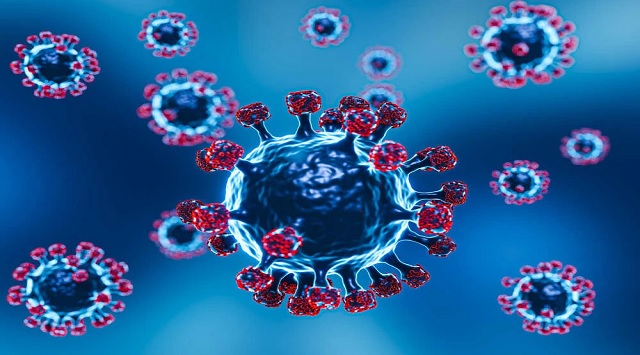‘JN.1 has numerous changes never seen in previous variants’
JN.1 has numerous changes that have never been seen in previous variants, according to experts on Tuesday.
New Delhi: JN.1 has numerous changes that have never been seen in previous variants, according to experts on Tuesday.
First detected in Luxembourg in August, JN.1 is currently present in about 41 countries, including India.
Due to its rapid spread, the World Health Organisation (WHO) has classified JN.1 as a separate variant of interest (VOI), from the parent lineage BA.2.86. It was previously classified as VOI as part of BA.2.86 sublineages.
Till date, India reportedly has 69 cases of JN.1 variant — from Goa, Maharashtra, Karnataka, Kerala, Tamil Nadu, and Telangana.
JN.1 variant is a descendent lineage of Omicron sub-variant BA.2.86, with the earliest sample collected on August 25, 2023.
In comparison with BA.2.86, JN.1 has the additional L455S mutation in the spike protein — which has immune-evasion properties.
“JN.1 is an all new variant with numerous changes that had never been seen in any commonly circulating lineage before. This is unlike other recent variants, which were merely a few mutations from their predecessor,” Dr Rajeev Jayadevan, co-chairman of the National Indian Medical Association Covid Task Force, told IANS.
“Therefore, the disease patterns from an immune evasiveness and spread capability of this variant needs careful attention,” he added.
He said immune invasiveness of a variant as the ability of the virus to overcome the existing immune response within an individual.
The WHO, in its latest epidemiological update, said that the global number of new Covid-19 cases has increased by 52 per cent during the last one month. The UN health body also reported an increase in hospital, ICU admissions as well as deaths globally.
While EG.5 remains to be the most reported VOI globally, as per the WHO, JN.1 could increase the burden of respiratory infections in many countries, it said.
“With the limited information available, we are aware that JN.1 has suddenly increased in numbers around the world, and is rapidly displacing the earlier circulating sublineage XBB. This means that JN.1 has the ability to overcome immunity generated by prior infection, vaccination, booster or any combinations of the above,” Dr Jayadevan said.
Scientists Vinod Scaria and Bani Jolly in a post on X.com stated that JN.1’s “capability for immune escape from antibodies is elicited due to prior infections or vaccines. The immune escape would mean reinfections would pick up significantly”.
However, “there is no evidence to suggest that JN.1 could pose a significant more threat to public health compared to other variants in circulation”, the scientist duo said, adding “the high immune escape property would mean JN.1 could out-compete other variants”.
“What remains to be seen is an analysis of deaths that occurred during this wave with critical evaluation of the reasons that led to the death. At this time it appears that death was primarily caused by aggravation of existing health conditions, in otherwise frail individuals. A better picture will emerge in the coming weeks,” Dr Jayadevan said.
Dr Ishwar Gilada, Consultant in Infectious Diseases Unison Medicare and Research Centre, Mumbai called on to increase wastewater surveillance and genome sequencing in the country.
“With wastewater, we can predict what can happen in the next 10 to 20 days in that particular town or municipal corporation area or a big city.
“Whole genome sequencing can help you know whether any new sub variant of Covid is coming,” he told IANS.
Meanwhile, the Health Ministry said on Tuesday reported the number of active Covid cases has gone up to 4,170. Three new fatalities were also reported from Karnataka.




 Ms Kalinga
Ms Kalinga